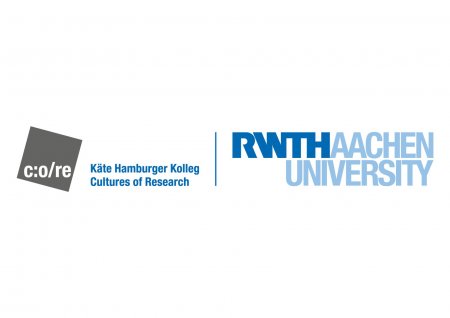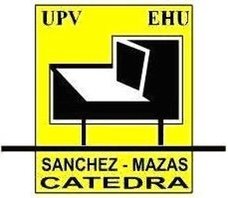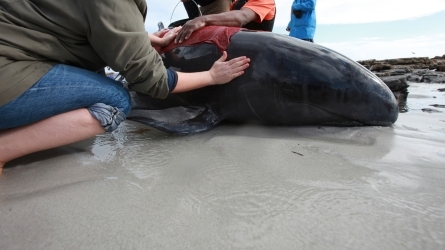
“Open science”: ambivalences and tensions - New borderlands between science, technology and society
Description
The present time is characterized by a distressing copresence of diverging dynamics such as digital transition, globalization, environmental crises, new forms of terrorism, new populism and many other dynamics pushing societies towards new answers about the old question of which forms of solving collective problems are both legitimate as well as effective. Thereby, we see two different forms of reaction which can be addressed as regressive forms of politics (e.g. protectionism, „post-truth“, nationalism) on the one hand versus calls for open societies based on knowledge sharing and coproduction dynamics (e.g. EU’s “three Os”: Open Innovation, Open Science, Open to the World; European Commission 2016, 2017; Moedas 2015) on the other. Same to science, like the discourse of “sound” or “excellent” science on the one hand versus calls for “upstream engagement”, “citizen science” and open science on the other indicate.
In any case, and this is our starting point here, while new borderlands between science, technology and society are emerging, troubling ambivalences might come to light as the opening-up might be aligned by closing down effects and vice versa. The ambivalence of “openness” is evident in the example of the EU strategies: The experimental processes of opening-up offer new chances for the inclusion of lay-people or citizens into the innovation process and thereby an improvement of efficiency and legitimacy. But, at the same time “open science” becomes instrumental to certain economic goals by which civil society risks being represented as “users” with a “central and transversal role to play in bringing innovation to the market” (European Commission, 2016, p. 17). This raises the question: How open is the politics of open science? The guiding principle of “Opening-Up Science, Technology and Society” is presented as the solution – but at the same time raises questions about the cultural-institutional boundary conditions of open science in practice (e.g. Nerlich et al. 2018; McGray et al. 2018).
ORGANIZATION COMMITTEE
- Andoni Ibarra, UPV/EHU
- Hannot Rodriguez, UPV/EHU
- Bettina-Johanna Krings, Karlsruhe Institute of Technology (KIT)
- Andreas Lösch, Karlsruhe Institute of Technology (KIT)
- Stefan Böschen, RWTH Aachen University
Objectives
The main objective of this Summer School is to ask about the degrees of openness of societal systems and institutions in which scientific practices are developed, in order to calibrate the meaning and scope of institutionalized “open science” practices and to explore the possibilities for developing more alternative forms of distributed and collective “open sciences”. In relation to different cultural and institutional constellations we ask of whether “openness” is a goal or a strategy to achieve the goal. “»Openness« is precisely the kind of concept that wavers between end and means.” (Kelty 2008, p. 148). The ambiguous and uncertain status of “openness” can degrade but at the same time stimulate inventions of new modes for its operationalizability:
Analyze the ambiguous notions of "open science" concerning its main epistemological and political dimensions while taking into account the contextual dependences of those dimensions. Anticipating and Exploring the potentialities of "open science" to develop alternative, distributed, collective forms of research related to alternative representations and imaginaries of the societal and technical realities (present and future)
Reflecting on the conditions and expectations of the underlying innovation systems and cultural-institutional constellations in order to analyze the (im)possibilities of developing socio-institutional reforms supportive of "open science" dynamics.
Collect actual experiences of "open science" initiatives around the globe (in the Western world and beyond) and to explore the potentialities (and hurdles) regarding the development of "open science" practices in different societal and national contexts.
Enable a critical and reflective examination of current "open science" strategies and modes/practices of operationalization.
Compare several case studies on science, and society constellations in specific national settings, which describe innovation systems, decision-making structures, institutional settings in detail. This could also include specific indicators, e.g. for innovation or studies of policy advice and policy making processes or more on cultural aspects of science and technology in societies.
Activity directed to
- PhD students
Contributors
Directors

Andoni Ibarra
Universidad del País Vasco, UPV/EHU, Department of Logic and Philosophy of Science
Andoni Ibarra is Professor of Philosophy of Science at the University of the Basque Country (UPV/EHU). He is also the Principal Investigator of PRAXIS Research Group, the founder of the Miguel Sánchez-Mazas Chair, which main goal is to promote Science, Technology and Innovation Studies; He is the Editor-in-Chief of Theoria. An International Journal for Theory, History and Foundations of Science. Andoni’s main line of research is on the performative character of scientific representations in the constitution of the world. More particularly, he has focused on offering concepts of representation not reduced to structural preservation, the relational perspectives for assessment of science and technology based on the connectivity of their practices, the articulation between different types of knowledge in the interaction knowledge-communication-interculturality and, in recent years, on the inclusivity of actors in the governance of responsible innovation as well as on the epistemology of anticipation.

Scientific Degree: Master of Art, M.A. in Political Sciences (Heidelberg, 1990); PhD (Dr.phil.) in Sociology (Frankfurt a. M., 2015) Previous Positions: Scientific Referee at the German Foundation of the International Development (1991-1992); Scientific Referee at the Ministry of Cultural Affairs in Buenos Aires, Argentina (1992-1994); Scientist at Institute of Technology Assessment and Systems Analysis (ITAS), Karlsruhe Institute of Technology (KIT) (since 1995); Senior Scientist at ITAS (since 2005) Current Position at ITAS: Head of Research Department: Knowledge Society and Knowledge Politics and ITAS (KIT) (since 2012) Speaker of the topic: Work and Technology at ITAS (since 2009) Deputy Speaker of the Topic: Technology and Work in the KIT Program “Humans and Technology” (since 2014)
Registration fees
| Registration | Until 18-07-2022 |
|---|---|
| 0 EUR |
Venue
Miramar Palace
Pº de Miraconcha nº 48. Donostia / San Sebastián
Gipuzkoa
Miramar Palace
Pº de Miraconcha nº 48. Donostia / San Sebastián
Gipuzkoa







